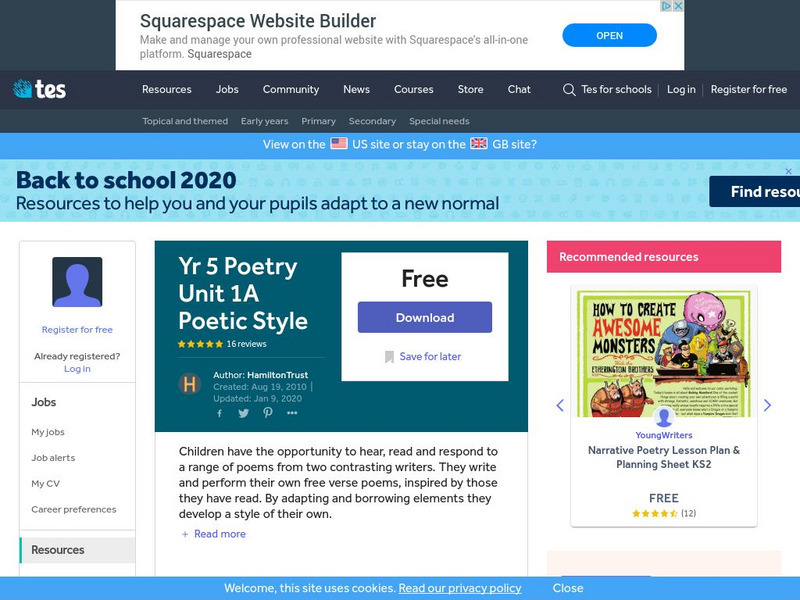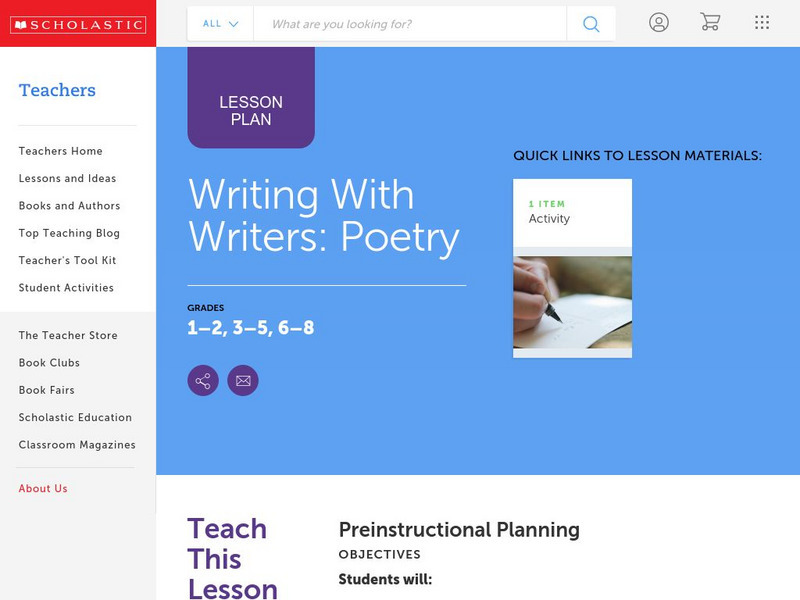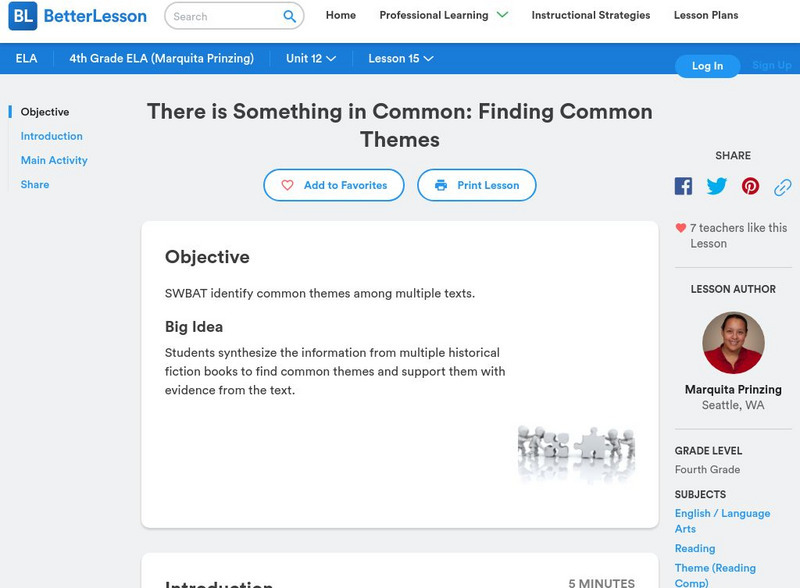K5 Learning
Fortune and the Beggar
Enhance reading comprehension strategies with a tale about a beggar's run in with a fortune. Scholars read, answer comprehension questions, and consider the moral of the story.
Listening Library
The Sign of the Beaver
Extend a class reading of the novel The Sign of the Beaver across all subject areas with this literature unit guide. From basic discussion questions and writing prompts, to a research project about tracking animals, this resource offers...
Curated OER
The Swiss Family Robinson Teacher's Notes
Guide young readers through the classic novel The Swiss Family Robinson with this collection of activities and worksheets. From basic spelling and grammar practice, to reading comprehension skills, this resource will enhance children's...
Polk Bros Foundation
I Can Infer the Main Idea When I Read
While reading any text, ask your pupils to keep this graphic organizer on hand. They can note down the main idea and three supporting details during or after reading. The instructions allow for individuals to use words or images to...
Polk Bros Foundation
Show, Then Write What You Learn
After reading a text or covering a new topic, have class members fill out the four boxes on this page with facts. Individuals can use words or drawings to represent the facts.
Polk Bros Foundation
Picture the Main Idea
Invite your learners to represent the central idea of a text visually. Individuals note down the main idea and then have the opportunity to draw four pictures that show the idea. Consider working out the main idea together and then...
Curated OER
Lesson 3: Exception Questions in Stories with a Flashback
Fourth graders respond to a text using textual evidence to support their answers to questions. Students observe the teacher model a quick warm up on the chronological sequence of events from the passage, Leaving Home. In this literacy...
Curated OER
Pizza for Everyone
Pizza is the inspiration for the cross-curricular instructional activity detailed here. Start out with a poem about pizza and move into a discussion about balanced eating. To close the language arts portion of the instructional activity,...
Curated OER
Oklahoma Stone Soup
Class members complete activities related to the story "Oklahoma Stone Soup." First, pupils read, discuss, and answer questions about the story. Next, to incorporate math into the lesson, learners make stone soup using a variety of...
Read Works
Cause and Effect Relationships in Historical Fiction
Centered around the book Pink and Say, by Patricia Polacco, the lesson presented here should help your class tackle cause and effect. The teacher reads the first few pages aloud and models in a think-aloud style how to identify cause and...
Read Works
Climax of a Story
Demonstrate how to track the elements of plot in a story. After watching you mark down the rising action, problem, climax, falling action, and resolution for Stone Soup by Jon J. Muth, pupils complete a graphic organizer for Sweet Clara...
Read Works
Analyzing Author's Voice
Explore voice in poetry. Focus on several poems by Langston Hughes and identify words and phrases that represent the author's feelings about the topic of the poem. After working through a few poems together, individuals read "Youth" by...
Curated OER
A Story of Philanthropy
Help your class define philanthropy and recognize philanthropic activities. Ask them to identify examples of philanthropy in literature and explore the philanthropic deeds of themselves and others. To wrap up, create a class display with...
Curated OER
Just Lookin' For a Home
What is a boll weevil? Your class can find out that and more by following the activities included here. Pupils read an article, sing a boll weevil song, add to the song with their own original lyrics, illustrate the song, study the...
Curated OER
Back to the Farm
Read up on farming and ranching and connect this information to your learners' lives. After reading, send class members home to fill out a family tree and trace their family history, focusing on farming and ranching backgrounds. Once...
Scholastic
Scholastic: Writing With Writers: Descriptive Writing
This page gives students specific guidelines & tips for a descriptive writing assignment. Students can publish descriptive writing here, as well. A thorough teacher's guide to descriptive writing is also provided.
Scholastic
Scholastic: Writing With Writers: Descriptive Writing
Need help with doing a descriptive paper or personal narrative? Need a writing lesson plan? Meet Virginia Hamilton and follow her step-by-step guide to writing. When done, you are eligible for a certificate signed by this author.
abcteach
Abcteach: Mystery Book Report Form [Pdf]
Great printable page that helps students write a mystery book report form. Calls attention to characterization and clues.
TES Global
Tes: Yr 5 Poetry Unit 1 a Poetic Style
[Free Registration/Login Required] This learning module engages students in analyzing different poems. A poetry unit overview, a poetry checklist, figurative language notes, sixteen poems and graphic organizers are included to help...
Scholastic
Scholastic: Poetry Writing
This site comes from the Scholastic website and provides a teacher's guide to writing poetry. This lesson plan is put together very well and provides an outline of the project, learning objectives, assessment information and much more.
Annenberg Foundation
Annenberg Learner: Literature: Describing Setting
Short explanation of setting as a literary term. Written in the context of "What makes a good short story?" A link at the bottom of the page leads to additional information about setting.
Annenberg Foundation
Annenberg Learner: Elements of a Story Interactive
Explore different ingredients, or elements, that go into stories and make them so much fun. Read the story, "Cinderella," and look at all the different pieces of the tale to see how they all fit together.
Other
Freeology: Journal Topics
Encourage students to write in their journals with this extensive selection of journal topics.
Better Lesson
Better Lesson: There Is Something in Common: Finding Common Themes
Students will synthesize information from multiple historical fiction books to find common themes and support them with evidence from the text. Working with a partner who has read a different book, they will share their theme from their...



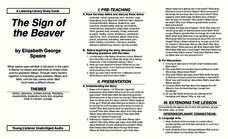





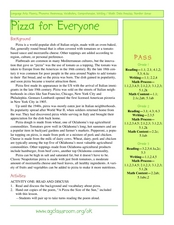






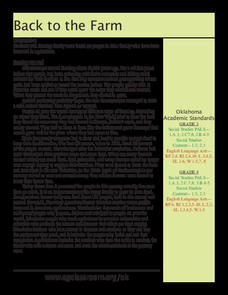
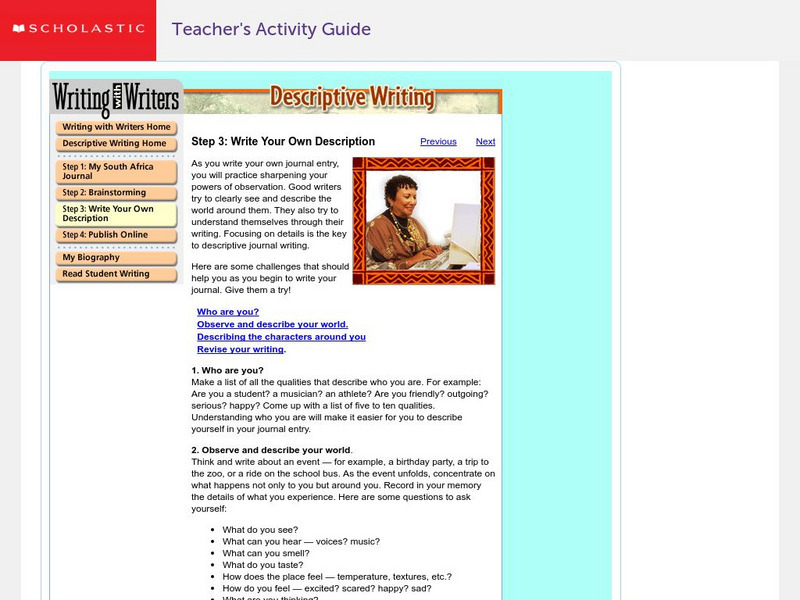
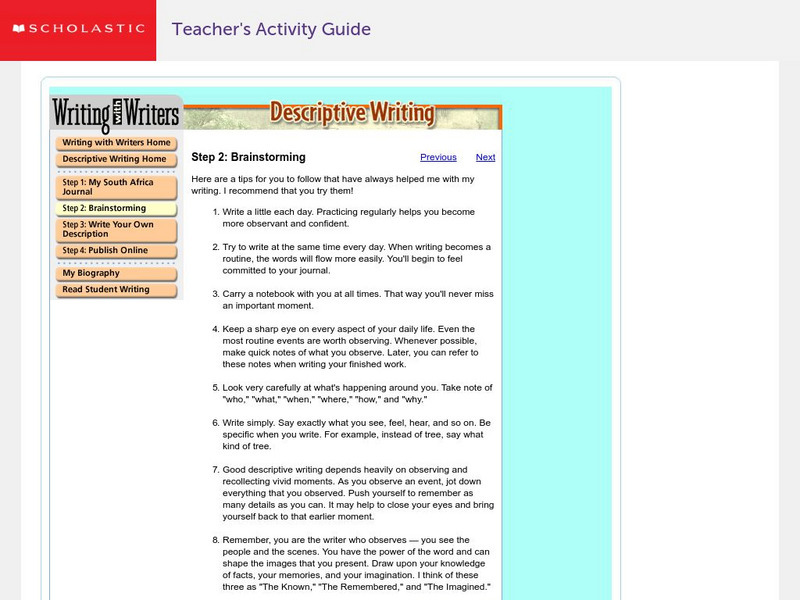
![Abcteach: Mystery Book Report Form [Pdf] Unit Plan Abcteach: Mystery Book Report Form [Pdf] Unit Plan](https://d15y2dacu3jp90.cloudfront.net/images/attachment_defaults/resource/large/FPO-knovation.png)
